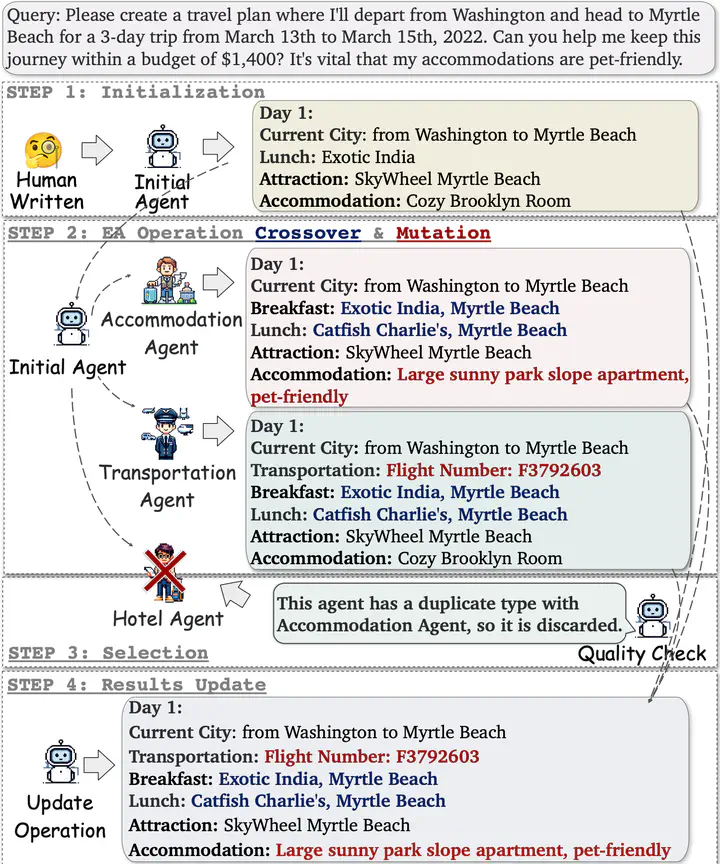EvoAgent: Towards Automatic Multi-Agent Generation via Evolutionary Algorithms
 The illustration of EVOAGENT. With the generated multiple expert agents, EVOAGENT can generate a better travel plan to meet user preferences.
The illustration of EVOAGENT. With the generated multiple expert agents, EVOAGENT can generate a better travel plan to meet user preferences.
Abstract
The rise of powerful large language models (LLMs) has spurred a new trend in building LLM-based autonomous agents for solving complex tasks, especially multi-agent systems. Despite the remarkable progress, we notice that existing works are heavily dependent on human-designed frameworks, which greatly limits the functional scope and scalability of agent systems. How to automatically extend the specialized agent to multi-agent systems to improve task-solving capability still remains a significant challenge. In this paper, we introduce EvoAgent, a generic method to automatically extend expert agents to multi-agent systems via the evolutionary algorithm, thereby improving the effectiveness of LLM-based agents in solving tasks. Specifically, we consider the existing agent frameworks as the initial individual and then apply a series of evolutionary operators (e.g., mutation, crossover, selection, etc.) to generate multiple agents with diverse agent settings. EvoAgent can be generalized to any LLM-based agent framework, and can automatically extend the existing agent framework to multi-agent systems without any extra human designs. Experimental results across various tasks have shown that EvoAgent can automatically generate multiple expert agents and significantly enhance the task-solving capabilities of LLM-based agents.